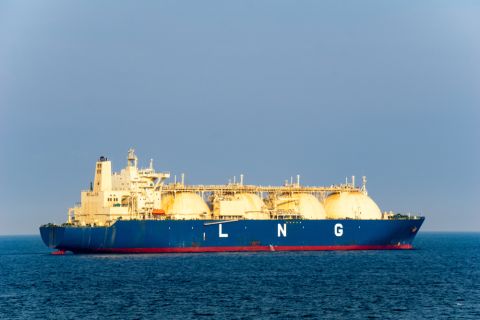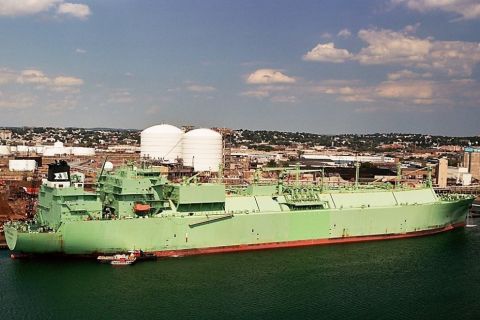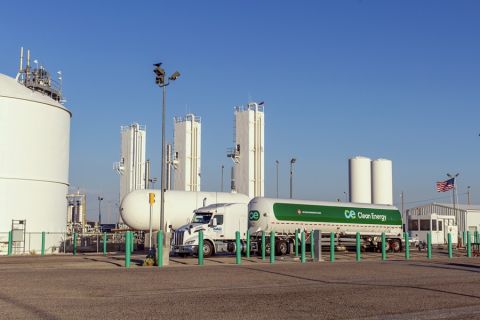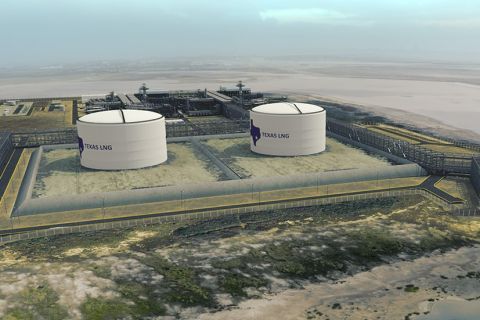Development of unconventional gas continues to drive a significant portion of U.S. pipeline construction, and work is being planned in several locations. As production from the Haynesville, Marcellus and Eagle Ford shale gas formations ramps up to meet rising demand, pipeline companies and midstream operators are making plans for new transportation systems in the midcontinent, southeast, and northeast regions of the country. Below are some of the more notable shale gas pipeline projects being built and planned.
Haynesville. Enterprise Products Partners L.P. and Duncan Energy Partners L.P. have announced plans for their jointly-owned Acadian Gas LLC subsidiary to extend its Louisiana intrastate natural gas pipeline system into Northwest Louisiana. The project will provide producers in the rapidly expanding Haynesville Shale play with access to markets through connections with Acadian’s existing 1,000-mile pipeline system in South Louisiana and nine major interstate pipelines. Early plans call for the Haynesville Extension to consist of a 249-mi, 30 and 36-in. pipeline that will connect to Acadian’s existing system, as well as its affiliated Cypress Gas Pipeline. Completion is planned for September 2011.
In addition, Enbridge Inc. has announced plans for a new interstate pipeline that will transport natural gas – including the Haynesville shale – from Carthage, Texas, to Washington Parish in Southeastern Louisiana. The proposed LaCrosse Pipeline, which would run from Enbridge’s Carthage Hub to an interconnection with Sonat Pipeline in Washington Parish, Louisiana, would include approximately 300 miles of 42 and 36-in. pipe. The pipeline would interconnect with at least five to six major interstate pipelines along this route, and could include up to as many as 12 pipeline interconnections, depending on shipper interest. Enbridge also is exploring the possibility of extending the pipeline to Florida Gas Transmission’s Station 10 near Wiggins, Mississippi. The proposed project is expected to be completed in late 2011 or early 2012.
Fayetteville. Kinder Morgan Energy Partners and Energy Transfer Partners continue to advance the $1.25-billion Fayetteville Express Pipeline (FEP) project, and work on it is expected to start this year. The joint venture for the project, Fayetteville Express Pipeline, L.L.C., recently reported that the FERC has approved its application permitting the construction and operation of the project. The FEP project will entail the construction of an approximately 185-mi, 42-in. natural gas pipeline that will serve the Fayetteville Shale producing region in Arkansas. As planned, the pipeline will originate in Conway County, Arkansas, continue eastward through White County, and terminate at an interconnection with Trunkline Gas Company in Panola County, Mississippi. Willbros reports that it has been awarded the construction contract for spreads three and four of the project, and its scope of work includes 120 miles of pipe beginning near Bald Knob, Arkansas, and ending at the Trunkline interconnection. This portion of the project is expected to begin construction in April 2010 and be completed in October 2010. The overall FEP project is expected to be in service by late 2010 or early 2011.
Eagle Ford. Enterprise Products Partners reports that it is building two natural gas pipeline projects in the Eagle Ford Shale formation in LaSalle and Webb counties in Texas. These pipeline projects are the initial expansions of Enterprise’s

Meritage Midstream Services is building 31 miles of 16-in. gathering lines in Webb County, Texas, in response to producers needs in the emerging Eagle Ford shale play.
Photo courtesy Meritage Midstream Services
network of midstream energy assets that span South Texas. One is the White Kitchen Lateral, a new 62-mi, 16-in. natural gas pipeline which runs through the heart of the developing Eagle Ford Shale play in LaSalle and Webb counties. This system will connect two existing 20-in. pipelines that lie at opposite ends of the development that are part of Enterprise’s South Texas pipeline system. Certain segments of the White Kitchen Lateral are already in service. An additional segment to further expand the capacity of the White Kitchen Lateral is scheduled for completion in the second quarter of 2010. Enterprise also says it will construct a 34-mi, 24-in. natural gas pipeline which will be the first segment of a major, east-west Eagle Ford Shale mainline. This segment is designed to connect the partnership’s South Texas pipeline system in southwest LaSalle County to the White Kitchen Lateral, and should be in service in the second quarter of 2010.
Marcellus. National Fuel Gas Supply Corp. is gauging market interest in its West-to-East expansion project, designed to offer new natural gas transportation capacity from Appalachia and central Pennsylvania to key northeast market interconnects at Leidy. Current plans call for the project to be built in two phases. In Phase I, National proposes to construct pipeline and compression facilities from the area near the intersection of National Lines FM100 and FM120 to Leidy. The facilities may include approximately 32 miles of 30-in. pipe and a 7,100-hp compressor station designed to receive gas directly and/or pump gas from existing lower pressure pipeline systems into the new high-pressure pipeline. With sufficient market interest, construction could start in late 2010 or early 2011 to meet a tentative November 2011 completion date. National says it anticipates providing additional transportation service as early as November 2012 with the construction of Phase II facilities. This could include an additional 50 miles of 30-in. pipe that would run along the existing FM100 corridor back to National’s Line K area, along with a second compressor station with up to 9,000 hp.
Elsewhere in the region, Tennessee Gas Pipeline Co. has announced plans for its 300 Line Expansion project, designed to link Marcellus shale and Appalachian natural gas production to northeast markets. The expansion facilities will consist of approximately 128 miles of 30-in. pipe loop and approximately 46,000 horsepower of additional compression. The facilities will be constructed in Tennessee’s existing pipeline corridor in Pennsylvania and New Jersey. Construction is subject to regulatory approval from the FERC and other regulatory agencies. Tennessee plans to execute a phased construction during 2010 and 2011, pending receipt of the necessary regulatory approvals.
In addition, Dominion has announced that it has requested the FERC pre-filing process for its proposed Appalachian Gateway Project, which is designed to transport natural gas produced in West Virginia and southwest Pennsylvania (including Marcellus shale) to storage fields and pipelines in Pennsylvania. Four new natural gas compressor stations would be constructed and upgrades would be made at two existing compressor stations, adding about 17,000 horsepower of compression to Dominion’s system. About 110 miles of 20, 24 and 30-in. pipeline looping would be installed in northern West Virginia and southwest Pennsylvania, terminating at the Oakford station in Delmont, east of Pittsburgh. The approximate cost for facilities in the FERC request is $600 million. Plans are for construction to begin in 2011 and to be in-service in 2012.
Recommended Reading
The Biden Effect: LNG SPAs Fall 15% in First Half 2024 After Pause
2024-07-03 - Poten & Partners data show that the total volumes associated with LNG sale and purchase agreements fell by 15% in the first half of 2024 compared to the same period in 2023 following the Biden administration’s LNG pause.
Constellation Energy’s Boston LNG Import Terminal Remains Open
2024-06-24 - FERC warned last year that plans to shut Constellation’s Everett LNG terminal could threaten the Northeastern power grid.
Analysis: China Prioritizes LNG Regasification as European Demand Wanes
2024-06-12 - Lower European demand is being countered by a growing LNG market in Asia, according to GlobalData research.
Clean Energy Fuels Adds Third LNG Train at California Plant
2024-06-11 - Clean Energy Fuels Corp. said adding a third train to its LNG plant would increase its capacity by 50%, a move an analyst said could reduce the company’s reliance on third-party suppliers and increase annual EBITDA by $2 million.
Texas LNG, EQT Sign a 2-mtpa LNG Tolling Agreement
2024-07-24 - EQT will supply natural gas to Texas LNG, a 4- million tonnes per annum LNG export terminal planned for the Port of Brownsville, Texas.





